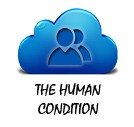 |
||
   
Balancing Act: The Newsletter (No. 232, December 2018) Maria and I wish all of you a Merry Christmas, Happy Hanukkah, Season’s Best, and Happy New Year! BALANCING ACT: BLENDING LIFE, WORK, AND RELATIONSHIPS® Balancing Act® is our registered trademark. You are encouraged to share the contents with others with appropriate attribution. Please use the ® whenever the phrase "Balancing Act" is used in connection with this newsletter or our workshops. Balancing act is in four sections this month: 1. Techniques for Balance 2. Musings 3. The Human Condition: Great Expectations 4. ORTIYKMWOYBNT-O Department Connect with me on Facebook, Twitter and LinkedIn. Free consulting newsletter: The Million Dollar Consulting® Mindset: Listen to my new, free Podcast Series on iTunes or on ContrarianConsulting.com: The Uncomfortable Truth. We are now on a WEEKLY schedule!  The art and science of balance in decision making: • Ask yourself, “What’s the worst thing that can happen?” and, if you can easily live with it, then the decision is worth the risk. • Compare “upside” with “downside” and make sure that the potential benefits far outweigh the potential risks. • Ask yourself if you can reduce the probability of the risk occurring and/or ameliorate it if it does occur. • Ask if anyone, anywhere, has successfully done what you want to do, or come reasonably close. • Always have a “plan B.” • Only ask people with proper experience for an opinion. One learned opinion is worth more than hundreds of guesses. • Language informs behavior. Tell yourself you can do it and will be successful, don’t keep second-guessing yourself. • Never regret a decision, it does no good. Just try to keep improving your circumstances, even if you have to change direction. • Remind yourself of all the good decisions you’ve made as you’re trying to make another major decision. • Rejoice in victories. It’s fine to take a metaphoric “victory lap.” My dog does it every time he catches a Frisbee.  Welcome to America’s new Dark Age: the age of hate. There are, apparently, no bounds on our behavior when we fight for a good cause. And if it’s our cause, then it’s a good cause. If it’s not our cause, then the other people are despicable. We once were able to disagree, debate, argue, and compromise. I define “compromise” as something you can live with, not something you’d die for. But compromise today is seen as weakness. We are in an irrational society when people use vulgarity to condemn vulgarity, screaming to attack screaming, and vindictiveness to counteract vindictiveness. You are red or blue. Right or left. Acceptor or denier. For or against. A boomer or millennial. The fact is that we are individuals. We cannot define ourselves or our friends or even strangers with arbitrary labels placed on metaphoric drawers into which we drop others. We cannot exist well in a pluralistic society by enslaving ourselves to identity politics. I root for the New England Patriots and my wife loathes them. We sit on opposite sides of the couch with our German Shepherd between us effectively preventing physical confrontation. We yell and we rant, but then the game ends and we’re over it. We continue our loving relationship and the dog goes on to canine interests. But that’s a game played during a short season. We’re not in a game nor a season in our lives. We need to disagree healthily, accept the outcomes, and behave rationally. Either that, or we need more German Shepherds.  One of our problems is that we expect everything to work, perfectly, endlessly. Our antecedents were constantly fixing things: plow shoes, wagon wheels, clothing, leaking roofs. Our parents fixed things that may have included the car, the refrigerator, a lamp. We seem to feel any failure is catastrophic and the manufacturer ought to be sued. Or we should simply throw the item in question away and purchase a new one which, presumably, will work perfectly. We once owned a beautiful Jaguar sedan, but even the service people told us that it needed a quart of oil monthly because there were small leaks that could not be fixed, mistakes in manufacturing beyond a local retrofit. We loved the car, so we did just that. “Resilience” is defined as the ability to quickly recover from difficulties; toughness; the ability to “spring back into shape.” Too many of us suffer from false expectations and expect perfection instead of applying resilience. That’s one reason we have so many spurious lawsuits. That’s why some bicycles come with an absurd sticker admonishing, “Turn light on when biking at night.” Really? Is that akin to “Put toes in shoes first”? My father-in-law used to stick his head under the hood and fix whatever was wrong with the car. Today, we call the service people, want the car picked up, fixed, and returned within the day. Try to get a watch fixed and it will take two months because jewelers just sell things, the repairs are specialized and take place in a cave somewhere in Bavaria. We’ve lost that “spring back into shape” and toughness. When cable TV fails to record a program, or our electric razor fails, or the microwave undercooks, we don’t go to plan B and find some other way. Instead, we scream at the fates, ask why the universe is so unfair, and hug service ostriches on airplanes. Those guys with “the right stuff” brought Apollo 13 home after an explosion in space. Is it unreasonable to think we can bring the groceries home after a flat tire?  I ordered replacements for a favorite pair of casual shoes on the internet. I was very careful about purchasing the same model and specifying the size. When the shoes arrived, they pinched badly. I couldn’t understand the difference in fit but I unhappily wrapped up the shoes to return with the label provided. As I did so, I found the cardboard inserts used to maintain the shoes’ shape in shipping still inside the shoes. Once I removed them, the shoes fit quite well. 
Don't forget to share this on social media: Having problems viewing this email? Click here. © Alan Weiss 2018 |
Balancing Act® is our registered trademark. You are encouraged to share the contents with others with appropriate attribution. Please use the ® whenever the phrase "Balancing Act" is used in connection with this newsletter or our workshops.

If you have to try to prove you’re the smartest person in the room, you’re clearly not. Alan Weiss |
|

